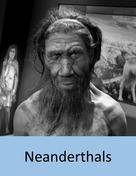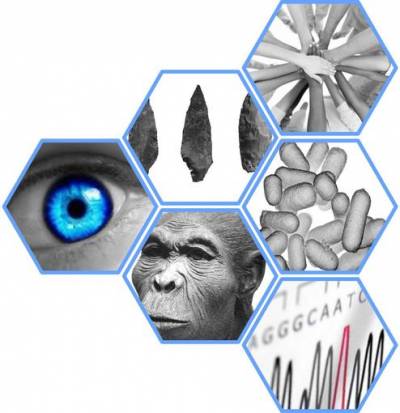" Neanderthal Evolution
 |
Neanderthals are a now-extinct human population which evolved in Eurasia and the Near East from around 400,000 years ago and who disappear from the fossil record around 40,000 years ago. Neanderthal cultures show adaptation to a wide range of Eurasian environments and include innovations in stone tool technology, hunting strategies, use of fire and complex, composite technologies. As perhaps the species closest to us in the fossil record, sharing a common ancestor with modern humans, their evolution and eventual disappearance is of great academic and public interest. The modern study of Neanderthal populations is an advanced, multi-disciplinary endeavour, combining sophisticated analysis of their technology, anatomy, diet, DNA composition and palaeoenvironmental context. Through recent advances in these fields we can now appreciate the Neanderthals as a distinct human population, capable of interbreeding with modern humans and possessing a complex behavioural adaptive responses to a wide range of environments during the Middle and late Pleistocene. UCL has a strong focus on Neanderthal research including the direct excavation of Neanderthal occupation sites, anatomical research and palaeoenvironmental studies into their contemporary landscapes. Through inter-departmental research here at UCL and important collaborations with other research institutions the Neanderthal legacy and the part they played in human evolution continues to be brought into focus. |
Experts in Neanderthal Evolution

|
 Close
Close









